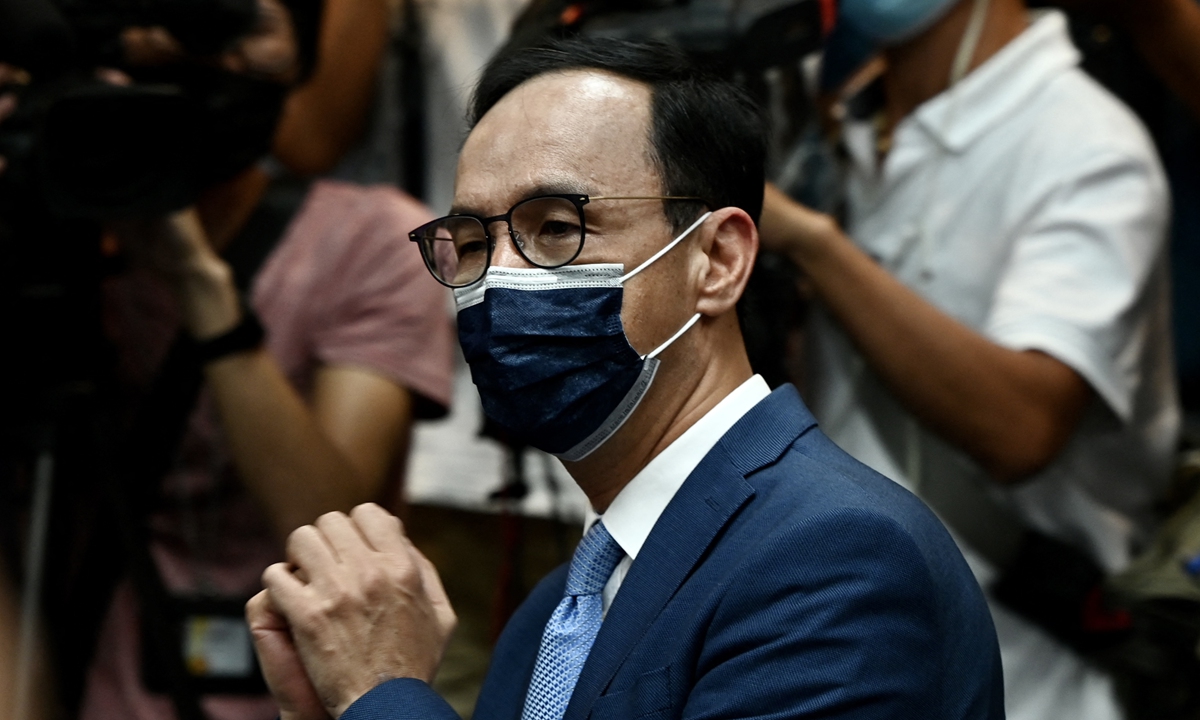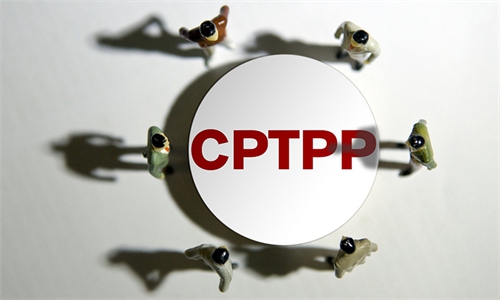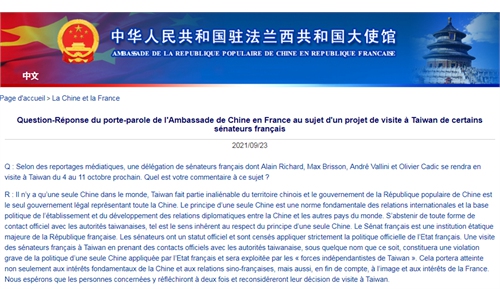Chu Li-luan gets 45.78% in KMT election, wise handling of cross-Straits ties urged: observers
Cross-Straits ties should be top agenda: observers

Chu Li-luan, newly-elected KMT chairman, gestures following his election victory for the party's leadership at the KMT headquarters in Taipei, China's Taiwan island, on Saturday. Photo: AFP
Chu Li-luan on Saturday won the Chinese Nationalist Party (KMT) election in Taiwan and became the next party chair, expected to lead the party through the referendum at the year-end, the 2022 local election and 2024 election for regional leader.
For the new chair, wisely handling the cross-Straits relations will be crucial for KMT to win swing voters, to differentiate from the ruling Democratic Progressive Party (DPP), observers said, noting though Chu is very likely to keep his ambiguity on reunification, he must understand that time has changed and playing between Chinese mainland and the US won't work.
About 50.71 percent of some 370,000 eligible KMT members voted for four candidates, the former chair Chu, current chair Chiang Chi-chen, Chang Yia-chung and Cho Po-yuan. Chu received 85,164 votes, or 45.78 percent.
Chu has vowed to stick to the 1992 Consensus as the basis in narrative for cross-Straits ties while mainland observers noted Chu will continue to keep a certain extent of ambiguity in interpreting the Consensus.
From the debate between Chu and Chang, it is clear that the latter shares more common understandings with the mainland and hence gets support of "dark blue," but electing Chang means it is difficult for KMT to win the 2024 election, observers said.
Wang Jianmin, a senior cross-Straits expert at Minnan Normal University, East China's Fujian Province, told the Global Times that Chu's election will be beneficial for KMT to keep its steadiness and mobilize more resources.
Wang noted three major tasks Chu must address to keep himself and the KMT competitive in front of DPP, how to stabilize the cross-Straits relations including the attitude toward secessionists, how to resume the disrupted communication mechanism between the Communist Party of China and KMT, and how to push economic, trade and people-to-people exchanges between the mainland and the island of Taiwan.
Zhang Wensheng, a deputy dean of the Taiwan Research Institute at Xiamen University, told the Global Times on Saturday that after being elected, Chu may become more active in interactions and exchanges with the mainland.
Both observers believed Chu will seek to enhance relationship with the US as well.
Chu has proposed to set a party representative office in the US, but "it would be difficult for KMT to make meaningful communications with the US since it is a party out of power," Wang said.
The expert also warned that Ma Ying-jeou era's "pro-mainland" and "US friendly" path won't work today amid the sharp and major changes in the world. At the legal level, relations with mainland should be top of a Taiwan political party's agenda unless it is seeking secession.
Due to DPP's poor handling of the COVID-19 epidemic, especially on the vaccine issue, KMT has gained an advantage in the referendum and may expand its control of local districts in 2022. But for KMT, the biggest challenge remains in 2024.
Based on Chu's past experience and status in KMT, his election was not very surprising. But it remains uncertain on how Chu can coordinate with Ko Wen-je, current mayor of Taipei and chair of Taiwan People's Party, the third biggest in the island's governance body, in the 2024 election. Otherwise, the situation would favor the secessionist DPP, analysts said.


